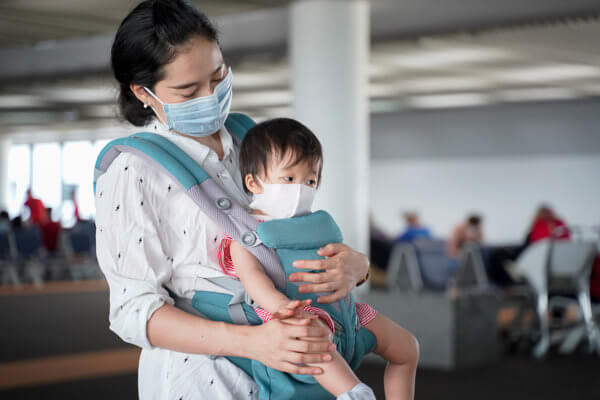 File under scary but true: Roughly one in 88 U.S. children have autism spectrum disorders—a number that increased nearly 78 percent between 2002 and 2008. And while most experts agree that little is known for sure about the causes and risk factors that contribute to autism, new research adds another clue.
File under scary but true: Roughly one in 88 U.S. children have autism spectrum disorders—a number that increased nearly 78 percent between 2002 and 2008. And while most experts agree that little is known for sure about the causes and risk factors that contribute to autism, new research adds another clue.
Children exposed to traffic-related air pollution in the womb and during their first year of life may have an increased risk for developing autism, suggests a new study from the University of Southern California. Researchers measured the pollution exposure of over 500 California children and found that children exposed to the highest levels of smog were more likely to have autism than children exposed to lower levels.
Researchers can’t say for sure how pollution and autism are related, but they suspect that exposure to pollution could turn on some of the same pathways in kids’ brains that are responsible for autism, says lead study author Heather Volk, Ph.D., M.P.H, investigator at the Saban Research Institute of Children’s Hospital Los Angeles and assistant professor at the Keck School of Medicine of USC. What they and other experts do know? Too-high levels of air pollution may harm kids in a number of other ways. High exposure is associated with preterm birth and small size for gestational age, and a growing body of research suggests it could negatively affect kids’ developing brains.
It’s unsettling news, but experts say you don’t need to ban your child from ever going outside again. “Right now, we’re not saying that air pollution causes autism,” she says. “We need to do more research to better understand the relationship between pollutants and autism to know if there are particular pollutants or particular times when exposure is important.” In the meantime, here’s how you can minimize your child’s exposure to dirty air:
See your doctor regularly For moms-to-be, you can help ensure your baby gets the healthiest start possible by getting good prenatal care, Volk says. That means scheduling regular check-ups, taking prenatal vitamins, and following her general stay-well advice.
Watch air quality guidelines Pollution exposure risks are higher on days with poor air quality. Keep track of the air quality guidelines in your area and limit time outside on days when air quality is poor, says Volk.
New research links exposure to high levels of air pollution to autism. Here’s what you need to know, and what you can do about it.



